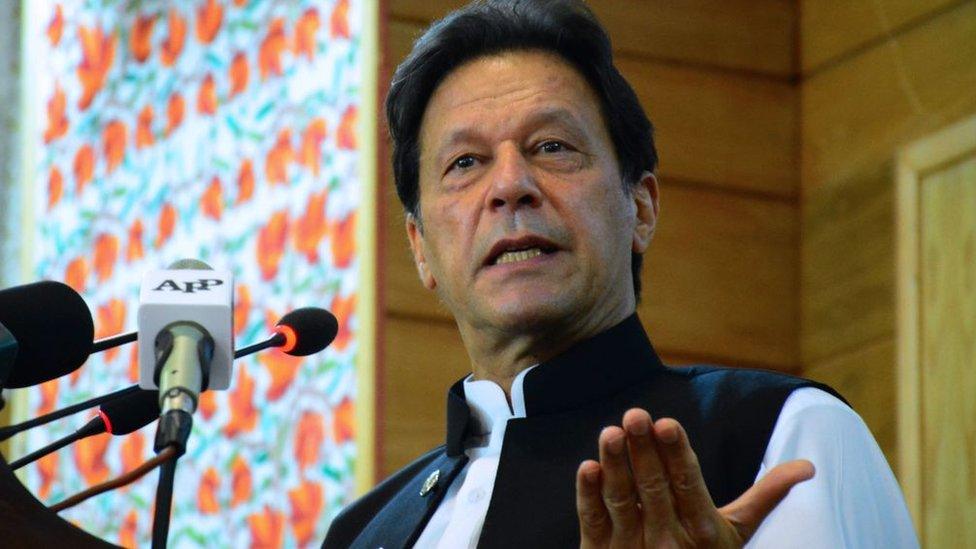Imran Khan: Pakistan PM on brink as confidence vote looms
- Published
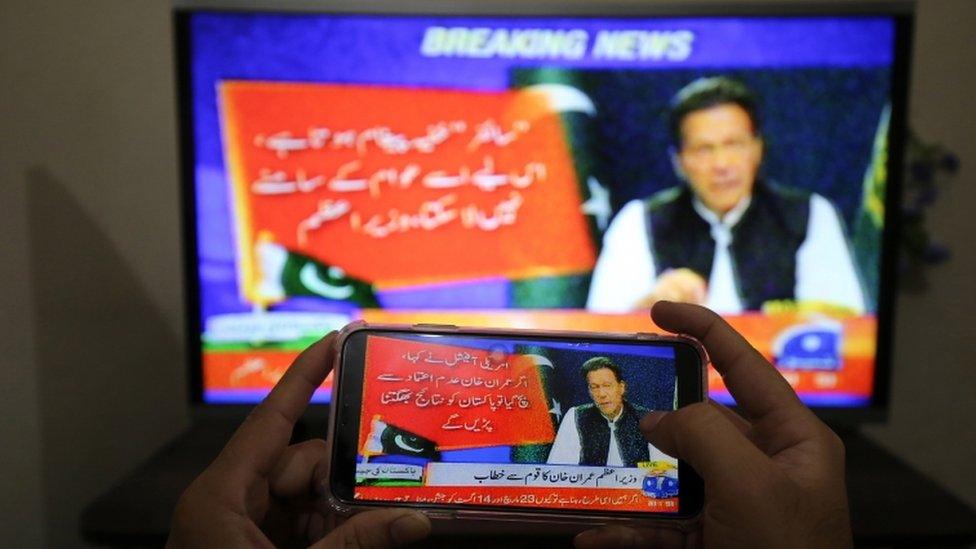
Former cricket star Imran Khan urged his supporters to protest on Sunday if he is ousted from office
Pakistan's Prime Minister Imran Khan has warned that if he is ousted from power, he will not recognise an opposition government.
He was speaking ahead of a no-confidence vote in parliament on Saturday, which he is expected to lose.
Mr Khan said he accepted the Supreme Court decision that he must face the vote, but repeated claims the US is leading a conspiracy to remove him. He did not provide evidence.
Washington denies the accusations.
There were angry scenes between supporters and opponents of the prime minister as parliament met to debate the motion on Saturday.
The speaker adjourned proceedings for several hours before parliament reconvened at 14:30 local time (10:30 BST).
The BBC's Secunder Kermani says the prime minister is widely regarded as having come to power with the help of Pakistan's army, but now observers say they have fallen out.
A number of his coalition partners have also deserted him.
During his Friday address, Mr Khan urged people to come out of their houses on Sunday to protest against the "foreign-funded drama".
He added: "I will be there with you as I will never accept this foreign conspiracy against Pakistan."
The leader of the opposition, Shehbaz Sharif, said the decision to go forward with a vote of no-confidence had "saved Pakistan and the constitution".


Pakistan's Supreme Court had ordered parliament to reassemble on Saturday morning, and it has.
It initially appeared that Imran Khan's party would attempt to delay the vote of no-confidence, with the Foreign Minister Shah Mahmood Qureshi, known for his lengthy speeches at the best of times, embarking on a what appeared to be a deliberately meandering monologue.
Opposition MPs reacted angrily, warning that a delay would be in breach of the Supreme Court's order. There's a suggestion the vote could happen in the evening and Imran Khan is still expected to lose it.
His allies, however, are doubling down on their allegation that the attempt to oust him is part of a US orchestrated conspiracy.
They cite a diplomatic cable from the Pakistani ambassador in Washington as proof, in which he reportedly said an American official warned there would be "consequences" if Mr Khan remained prime minister because of his recent visit to Russia.
Members of Mr Khan's party in parliament have brought posters with them, one reading, "whoever is a friend of America is a traitor".
Mr Khan's opponents and US officials have dismissed the conspiracy allegation, most analysts believe it's a deliberate exaggeration of the contents of the diplomatic cable.

Saturday's confidence vote comes after opposition lawmakers put forward a no-confidence motion to parliament last Sunday, in a bid to oust Mr Khan from power.
But parliament's deputy speaker Qasim Suri - a member of Mr Khan's political party - swiftly blocked the vote, saying it showed "foreign interference". Mr Suri also said that it went against the constitution, which calls for loyalty to the state.
Mr Khan's government went on to dissolve parliament and called for a snap election to be held.
This made several opposition members furious, with some accusing the prime minister of treason for blocking the vote.
Opposition figures submitted a petition to the Supreme Court to assess the situation.
On Thursday, Pakistan's top court ruled that Mr Khan's decision to stop the vote from going ahead was unconstitutional. It ordered that the no-confidence vote should go ahead again on Saturday, 9 April.
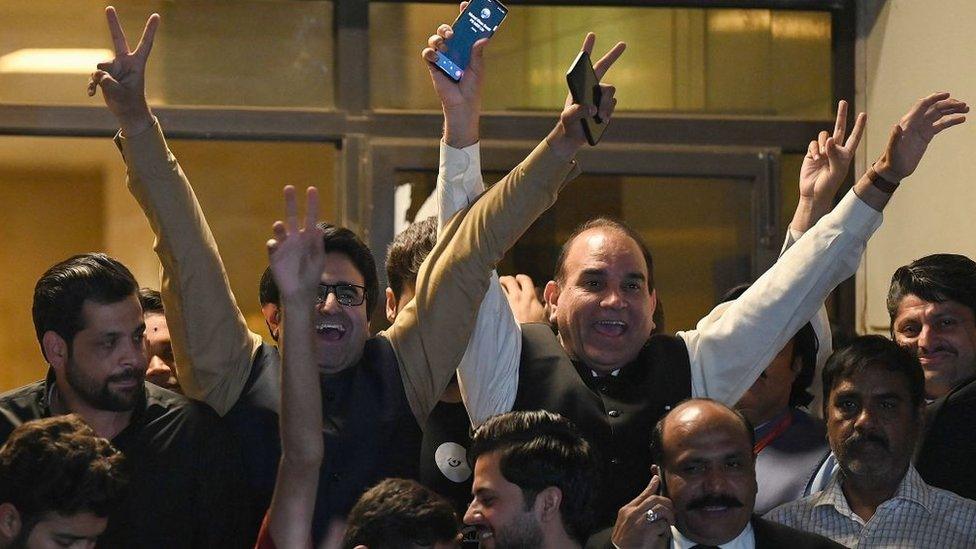
Opposition supporters celebrated outside the Supreme Court after the court ruled the blocked vote as unconstitutional
Mr Khan has repeatedly said that Pakistan's opposition parties are working with foreign powers.
He claims that he is the target of a US-led conspiracy to remove him because of his refusal to stand with Washington on issues against Russia and China. The US said there was "no truth" in these allegations.
The expectation is that the former international cricket star will lose Saturday's vote.
In the event that Mr Khan is ousted from power, the opposition parties will appoint a new prime minister who can hold power until October 2023, when a new election is scheduled to be held.
BBC Urdu reporter Abid Hussain says it is unclear what other options Mr Khan can exercise to avoid that outcome, unless he and his MPs decide to submit a resignation in an attempt to avoid the humiliation of a defeat.
Five things to know about Imran Khan (from 2018)
Related topics
- Published8 April 2022
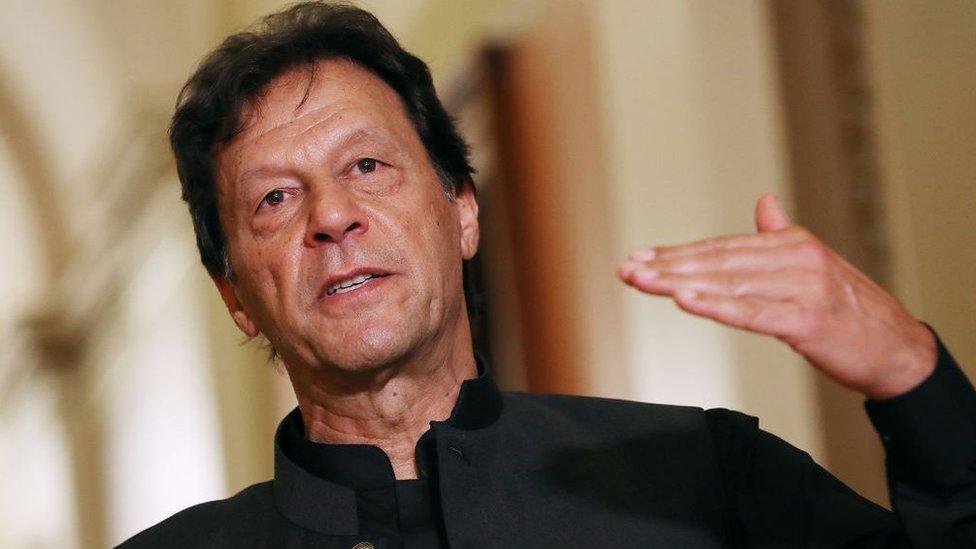
- Published1 February 2024
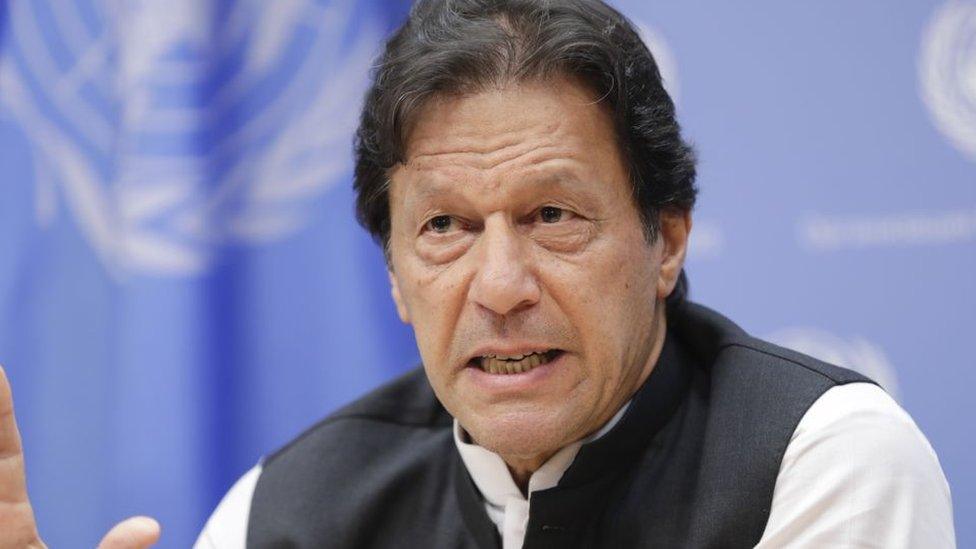
- Published2 April 2022
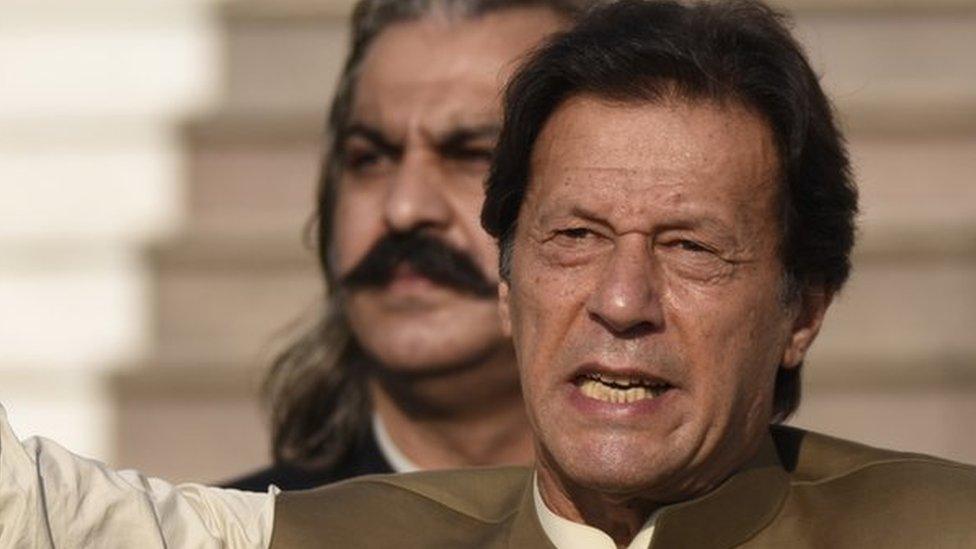
- Published31 March 2022
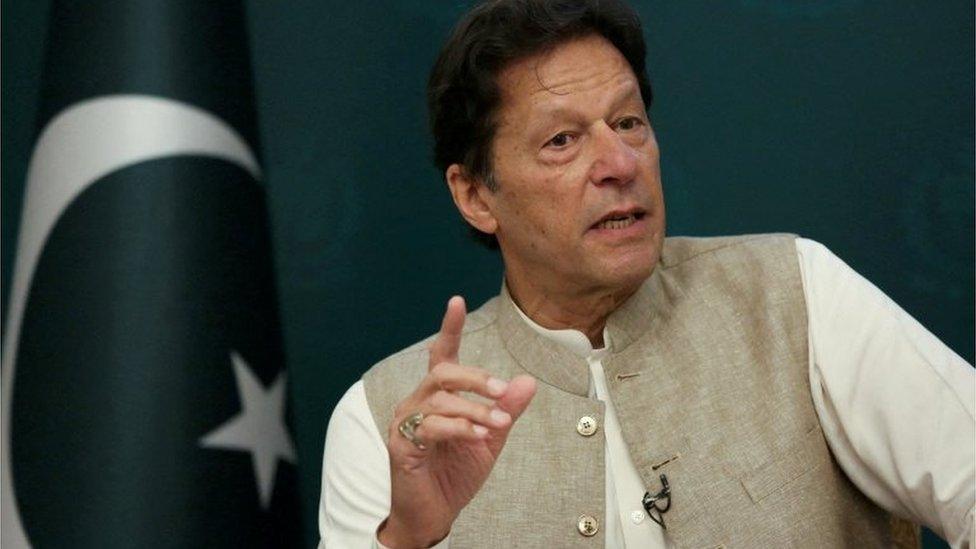
- Published4 April 2022
